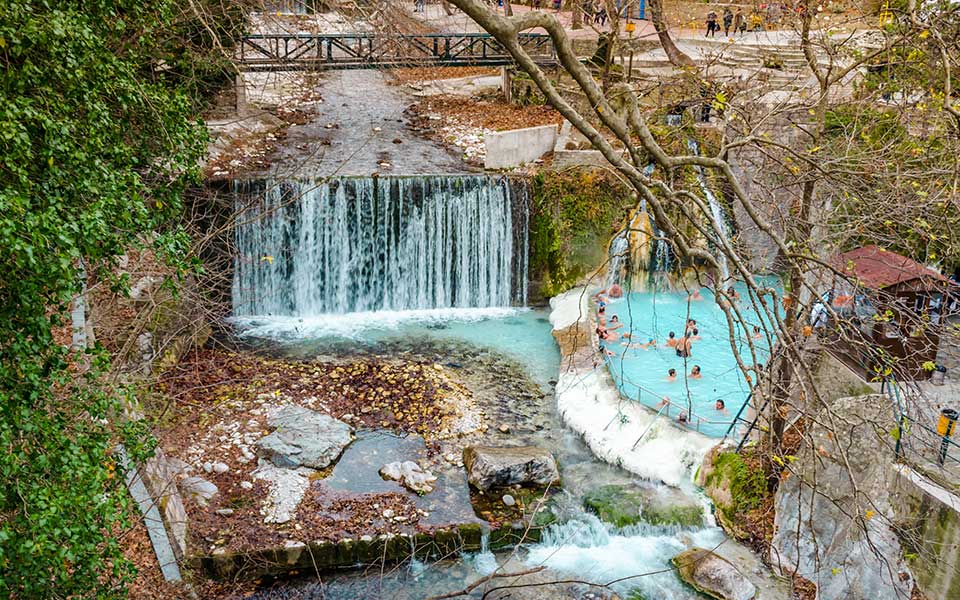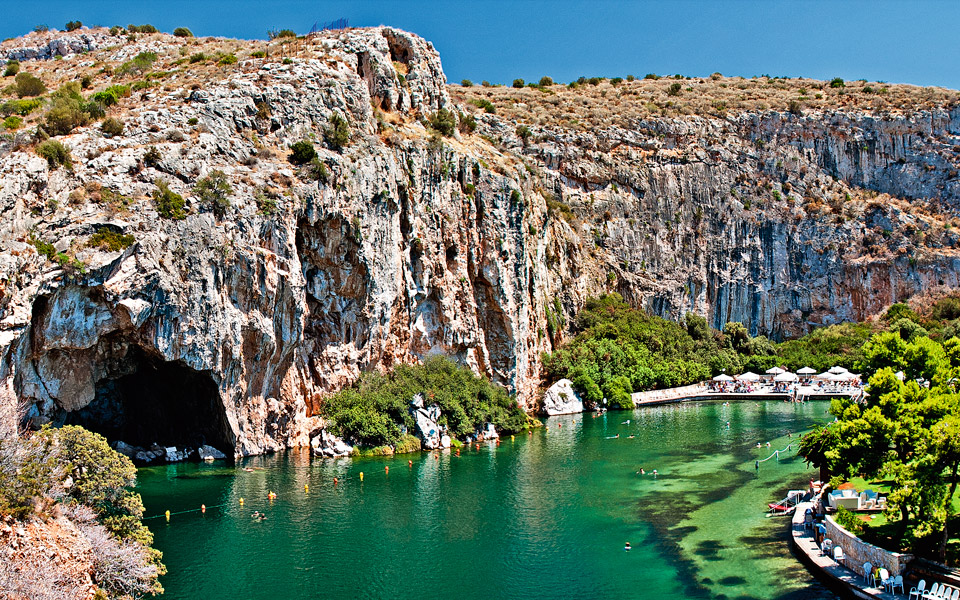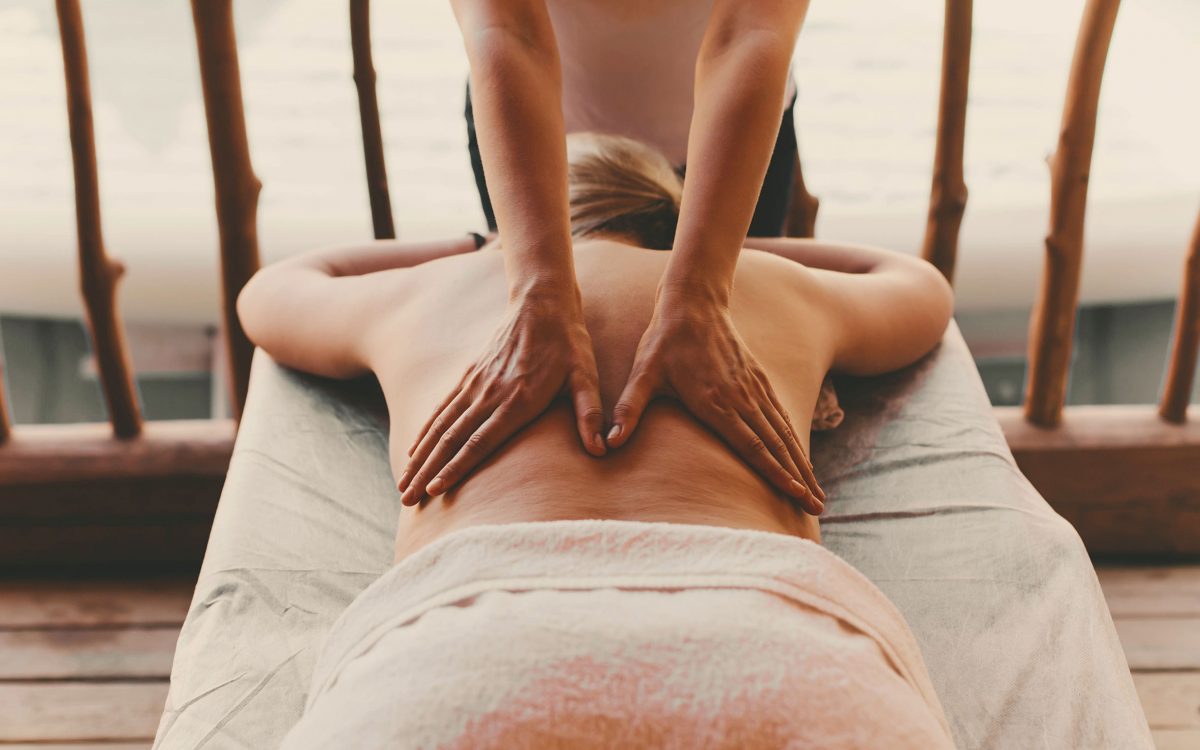When Gods Were Tourists: Greece’s Sacred Travel Hubs
Before passports and package tours, pilgrims...

Pozar springs. There are 750 hot springs in Greece, only 82 of which are recognized.
© Shutterstock
A turnover of more than a trillion dollars is expected to be recorded in the next five years by the global health and wellness tourism market. A small portion of this amount will be directed to Greece, which, despite being well endowed with beautiful nature landscapes, with dozens of thermal springs and an excellent bio climate, does not have the infrastructure – with a few exceptions – to attract and accommodate the millions of tourists who are prepared to pay handsomely for such services.
“In recent years, there has been a growing trend favoring natural remedies combined with physical and mental health care. This trend, a new way of life in industrial megacities, is leading to a shift towards wellness tourism, not only in Greece, but also abroad, where important spa towns are being modernized and developed and where specialized tourism programs are being executed. The new boom in therapeutic tourism internationally has not yet steered our country to build the essential specialized tourism proposal,” notes Konstantinos Koussoukis, professor of dermatology, lawyer and president of the Hellenic Academy of Medical Medicine. “Nature, apart from rare landscapes and special natural beauties, has also endowed Greece with springs offering vital therapeutic properties. Thermal baths are part of the country’s national abundance, and their healing properties have been known since ancient times.
Hippocrates, the father of medicine, studied and spoke about the healing properties of waters and can be considered the founder of the science of hydrotherapy. References to the life-giving and healing role of water are also abundant in mythology. From the accounts of ancient writers, we learn that the hero Hercules used to bathe in the spring of Thermopylae to regain his strength after every feat, Ivy, the goddess of youth, bathed in the healing waters of Patras to keep herself young, and the spring of Ypati was dedicated to the goddess Aphrodite.
Evidence of therapeutic baths can also be found in the Homeric epics, while in Classical Greece in general we know that baths were used for their therapeutic purposes. The Asclepieion of Epidaurus was the preeminent sanctuary of hydrology and hydrotherapy in pre-Hippocratic times, while the Asclepieion of Kos also had baths and fountains for hydrotherapy. The tradition and practice of thermal medicine and therapeutic baths was inherited and continued by the Romans and the Byzantine people (from whom the Ottomans were inspired by their hammam baths) and survives to this day.
“Thermal medicine emerged as a healing method that was complimentary to classical medicine. The therapeutic effect of thermal springs is owed to the chemical properties of the minerals and especially the trace elements contained in the thermal waters, in the form of dissolved salts and gases,” Kouskoukis notes. “The curative actions target diseases of the musculoskeletal, nervous, respiratory, cardiovascular, hematopoietic, gastrointestinal, urological and endocrine systems, as well as dermatological, otolaryngological, gynaecological, allergic and periodontal diseases,” he explains.

Lake Vouliagmeni in Athens is an urban oasis for hotspring-lovers.
© Shutterstock
There are a whopping 750 hot springs in Greece, 82 of which are recognized as such, and only 15 have an operation certificate, according to data available to the president of the Academy of Thermal Medicine. Of the thermal springs that are recognized, most belong to municipalities, some to the State and a few are privately owned. “Greece has spas, but not modern health resorts, which is what high-income tourists are seeking,” he said. “As a result, the majority of their visitors come from domestic tourists and only 2-3% from abroad. There should be significant investments to substantially improve infrastructure and facilities and, most importantly, to combine spa tourism with alternative forms of tourism to achieve what is internationally defined as Wellness Tourism and in particular MediSpa services.”
Wellness tourism has substantial economic advantages and is a form of tourism that can operate on a 12-month basis. In order for the effects of a spa therapy to take full effect, visitors need to remain at the resort for a extended period – on average for three weeks – and holiday packages at these centers are most often combined with other tourist services such as leisure, rejuvenation and sports, because they are aimed not only at patients, but also at their companions and other guests, usually of a higher income level. Therefore, in addition to all the general and specific infrastructure, these spa complexes must have the appropriate environment required for long-term tourism such as green parks, gardens, lakes, clinics, sophisticated treatment centers, suitable equipment and qualified doctors.

Wellness tourism is a trillion dollar industry and could be better implemented in Greece, says professor Konstantinos Koussoukis.
© Shutterstock
Many important resources could therefore be developed, from the current spa centers to thermal health resorts and combined with alternative forms of tourism developed on the basis of sustainable development principles. In this way, they will add value to the tourism product and make the areas concerned more attractive to the most demanding of tourists.
“Those familiar with the tourism market say that at least 150,000 insured individuals could visit our country’s thermal springs, with a turnover of 300 million euros, given that foreigners’ trips are financed by their insurance funds. Furthermore, those who are most optimistic people are talking of a turnover that could reach up to one billion euros through the utilization of thermal springs,” Koussoukakis notes, stressing that it is essential to create the appropriate infrastructure to provide properly certified health, wellness and anti-aging services, so that Greece can become a dominant player in the field of health tourism and, in particular, spa tourism.
This article was previously published in Greek at kathimerini.gr.
Before passports and package tours, pilgrims...
A natural spa by the Athenian...
We discover the healing properties of...
Tourists share the highs and lows...